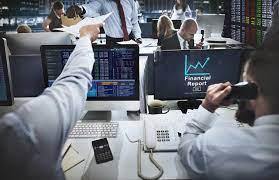Proprietary trading firms, commonly referred to as prop trading firms, have become a central part of the modern financial landscape. These firms provide skilled traders with access to company capital, allowing them to trade in various markets without needing to risk their own funds. Instead of working with personal accounts, traders utilize the resources of the firm to maximize potential gains. In return, profits are shared between the trader and the firm. This model has created a mutually beneficial relationship, where prop trading firms gain from the performance of talented traders, and individuals benefit from access to greater capital and advanced trading tools.
The Concept of Prop Trading
The idea of prop trading is simple yet powerful. Instead of focusing solely on clients’ money, these firms invest their own resources into the markets. They rely on their traders’ ability to spot opportunities, manage risks, and consistently generate profits. By granting access to capital, the firm ensures traders can amplify their strategies without being limited by personal account sizes. This concept has opened the doors for skilled traders who may lack significant funds but possess the knowledge and discipline required for success.
Advantages of Joining a Prop Trading Firm
One of the greatest advantages of working with a prop trading firm is the ability to access large amounts of capital. Traders often start with a limited account balance, which restricts their ability to take advantage of certain market opportunities. A prop firm removes this limitation, allowing individuals to scale their strategies to a professional level.
Another key benefit lies in risk management. While traders are responsible for executing trades, prop firms usually enforce strict risk controls. These measures ensure that traders learn to manage losses effectively while focusing on long-term growth. The presence of structured rules helps traders avoid emotional decision-making and reckless behavior.
In addition to capital and risk management, prop firms provide infrastructure. This includes advanced trading platforms, data feeds, analytics, and mentoring opportunities. Many traders also appreciate the supportive community within these firms, where collaboration and idea-sharing can enhance overall performance.
Profit Sharing and Compensation Models
The compensation model in prop trading firms typically revolves around profit sharing. Traders generate returns from the capital they manage, and these profits are divided between the firm and the individual. The percentage split varies depending on the agreement, but it often ensures both parties benefit fairly. A trader’s share can grow as they demonstrate consistency, responsibility, and profitability. This merit-based approach motivates individuals to improve their skills continuously.
The Skills Needed to Succeed in Prop Trading
While capital and infrastructure provide valuable advantages, success in prop trading ultimately depends on the trader’s skillset. Analytical thinking is crucial, as individuals must be able to interpret financial markets, study charts, and evaluate fundamental or technical factors influencing price movements. Discipline is another vital quality, as it allows traders to follow their strategies consistently without being swayed by short-term emotions.
Risk management stands as the backbone of sustainable trading. Prop traders must learn to cut losses quickly, size positions correctly, and avoid overexposure to a single asset. Without risk management, even the most profitable strategies can fail over time. Additionally, adaptability plays a major role, since markets are dynamic and constantly changing. Traders must be willing to adjust their approaches based on evolving conditions.
Different Trading Styles within Prop Firms
Prop trading firms accommodate various trading styles depending on the strengths and preferences of their traders. Some focus on day trading, where positions are opened and closed within a single session to capitalize on intraday volatility. Others prefer swing trading, holding positions over several days to benefit from medium-term market moves. For those with a long-term outlook, positional trading strategies are also viable.
Additionally, certain firms encourage traders to specialize in specific asset classes such as equities, forex, commodities, or derivatives. Others may focus heavily on algorithmic or quantitative trading, where computer programs execute strategies automatically. By offering a range of styles, prop firms ensure traders can choose approaches best suited to their personality and expertise.
Training and Development in Prop Firms
Many prop trading firms recognize that not all skilled traders begin at the same level of experience. As a result, they often provide structured training programs aimed at developing talent. These programs cover everything from technical analysis and trading psychology to advanced risk management techniques. Mentorship from experienced traders is another common feature, as learning from real-world experience can accelerate growth significantly.
Continuous development is also a priority. Market conditions change frequently, so firms encourage traders to refine their methods, back-test strategies, and remain informed about global events. This emphasis on education ensures traders remain competitive and adaptable over time.
The Role of Technology in Prop Trading
Technology has transformed the way prop trading operates. Modern firms rely on sophisticated trading platforms that provide instant access to multiple markets, real-time data feeds, and powerful analytical tools. High-frequency trading strategies, for example, are made possible only through advanced algorithms and fast execution systems.
For discretionary traders, technology simplifies decision-making by offering charting software, back-testing features, and automation capabilities. The use of artificial intelligence and machine learning is also growing, allowing firms to identify patterns and opportunities that might be overlooked by traditional methods. Ultimately, technology enhances efficiency, accuracy, and speed, giving traders an edge in competitive markets.
Risk Management in Prop Firms
One of the core pillars of every prop trading firm is effective risk management. Since the firm’s capital is at stake, protecting it is essential. Firms often establish strict daily loss limits, position size restrictions, and maximum drawdown levels. These measures safeguard both the firm and the trader from catastrophic losses.
At the same time, such rules teach traders how to approach the market responsibly. Instead of focusing solely on making large profits, individuals learn the value of consistency and controlled growth. By adhering to these guidelines, traders increase their chances of long-term success.
Challenges Faced by Prop Traders
Despite the numerous advantages, prop trading comes with challenges. Traders operate in high-pressure environments where performance directly impacts their career progression. The need to meet profit targets while adhering to strict risk rules can create stress. Additionally, markets are unpredictable, and even the best strategies may face temporary setbacks.
Psychological resilience becomes critical in overcoming these challenges. Traders must accept losses as part of the process and maintain confidence in their systems without becoming overconfident. Learning how to balance discipline with adaptability is often the deciding factor between success and failure.
Opportunities for Skilled Traders
For skilled individuals, prop trading presents exceptional opportunities. The ability to manage large amounts of capital allows traders to scale their returns significantly compared to trading personal accounts. The profit-sharing model ensures rewards are directly tied to performance, meaning traders who consistently deliver results can earn substantial incomes.
Moreover, the collaborative and resource-rich environment within prop firms enables individuals to grow professionally. By accessing tools, training, and mentorship, traders can continually refine their strategies. For those who aspire to build long-term careers in financial markets, joining a prop firm can be a transformative step.
The Future of Prop Trading
The future of prop trading appears promising, with more individuals seeking opportunities to enter this field. As financial markets evolve and technology continues to advance, new strategies and tools are likely to emerge. The growth of algorithmic trading, artificial intelligence, and blockchain technologies may redefine how firms and traders operate.
At the same time, globalization has expanded access to trading opportunities across multiple markets, making the profession more inclusive. Traders from diverse backgrounds can now contribute their perspectives and ideas, further strengthening the industry. With its combination of opportunity, innovation, and merit-based rewards, prop trading is set to remain a dynamic force in global finance.
Conclusion
Prop trading firms play a vital role in connecting skilled traders with the resources they need to succeed. By providing access to capital, advanced technology, and structured risk management systems, these firms create an environment where talent can flourish. Traders, in turn, bring their knowledge, discipline, and adaptability to generate consistent profits.
While challenges exist, the opportunities far outweigh the risks for those who approach trading with professionalism and dedication. For individuals seeking to grow their careers in financial markets, prop trading offers a unique pathway where skill and performance determine success. As the industry continues to evolve with advancements in technology and global finance, it will remain an attractive and rewarding choice for ambitious traders worldwide.



